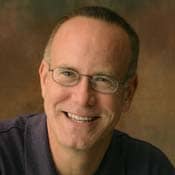Editor's Note: This is the seventh installment of Dr. Roberts' "Master Class for Pastors." The first parts are theIntroduction, "Who Are Your Partners?" "The Impact of Thanksgiving," "How Do You Talk About Your Church?" "Understanding Your Cultural Context," and "Nine Stereotypes for Pastors."
In my last article in this "Master Class for Pastors," I noted, once again, how Paul and his pastoral colleagues understood their work in the cultural context of their day. In light of this observation, I considered "Nine Stereotypes of Pastors" that people might be inclined to apply to pastors in today's world: ideal pastor, doctor, psychologist, teacher, friend, handyman, magician, CEO, and parent. We who serve as Christian clergy, it seems to me, ought to discern how we are both like and unlike these nine stereotypes.
Once again, we find a model for this kind of discernment in 1 Thessalonians. As you may recall, in the second chapter of this letter, Paul and his colleagues use the language of the popular philosophers to explain and defend their pastoral work. So, for example, when they write, "we never came with words of flattery or with a pretext for greed; nor did we seek praise from mortals, whether from you or from others" (2:5b-6), Paul & Co. sound very much like their secular counterparts. The philosopher Dio Chrysostom, for example, speaks about how rare it is to find a person who philosophizes "neither for the sake of praise nor for financial gain" because the world is full of "flatterers, magicians, and sophists" (Orationes, 32:11). Paul and his team could have said that very thing.
But, as the Christian pastors continue to describe their relationship with the Thessalonians, they take a turn that leaves the secular philosophers in the dust: "though we might have made demands as apostles of Christ. But we were gentle among you, like a nurse tenderly caring for her own children. So deeply do we care for you that we are determined to share with you not only the gospel of God but also our own selves, because you have become very dear to us" (2:7-8). The language of "making demands" (literally, being a heavy burden) describes what the secular philosophers would have prized in their human improvement efforts. They were proud of their freedom of speech, which often included harsh statements and heavy demands. Paul and his colleagues believed that had the authority to make demands in this way, but they chose a different path, the path of gentleness.
The popular philosophers did sometimes speak of a need for gentleness, even using the image of a nurse (wet-nurse). Plutarch, for examples, observes that those who are philosophically sick require "gentle usage and help. When children fall down, the nurses do not rush up to them and berate them, but they take them up, wash them, and straighten up their clothes, and after all this is done, they then rebuke and punish them" (Quomodo adulator, 69B-C). Yet, notice the ambivalence in Plutarch's use of the image of the gentle nurse. Along with gentleness, there is rebuking and punishing. One of the secular philosophers, Julian, criticizes a colleague for "crooning myths as nurses do" (Oration, 7.204A). These philosophers believed that they needed to be tough, even to abuse their students with their words, in order to make them better people.
In contrast, Paul and his colleagues do something unprecedented among the philosophers of their day. The Christian pastors apply the image of the wet-nurse to themselves. Though they could have been abusive, like their secular competitors, instead they "were gentle among you, like a nurse tenderly caring for her own children" (2:7). Notice that they are not just the servant who serves as a wet-nurse for children. Rather, Paul and Co. are like a mother nursing her own children. What a striking image of intimacy and tender care! You wouldn't find any of the secular philosophers talking this way about themselves.





